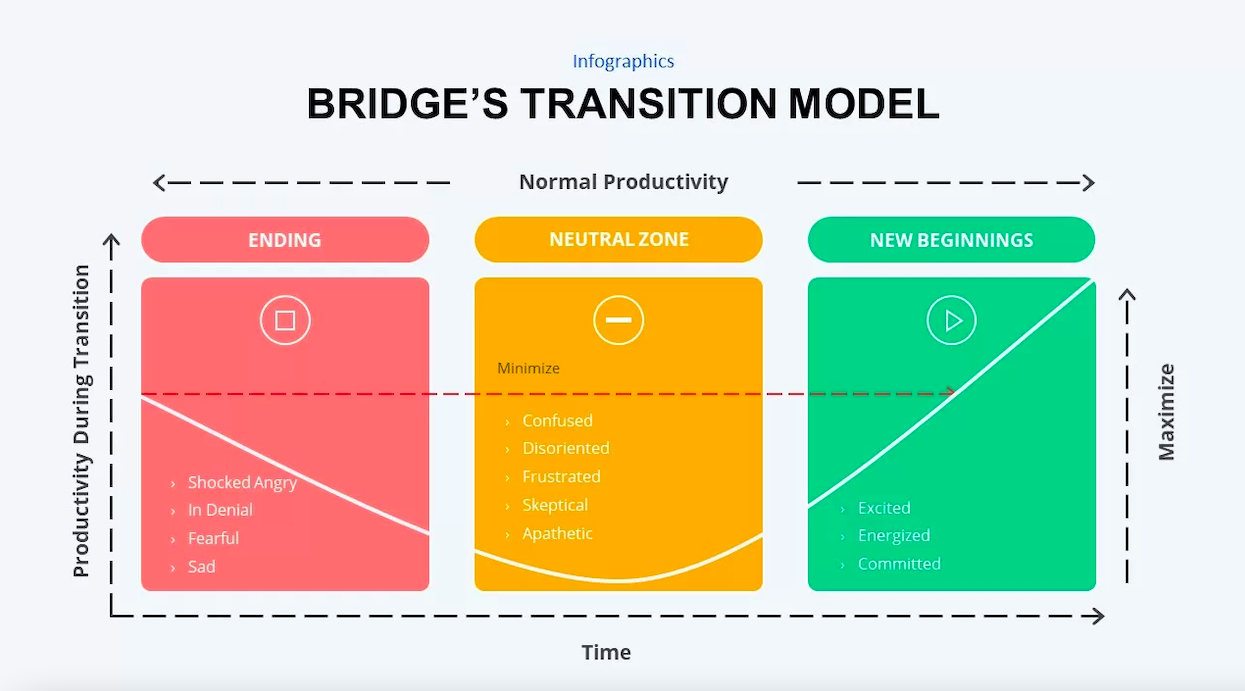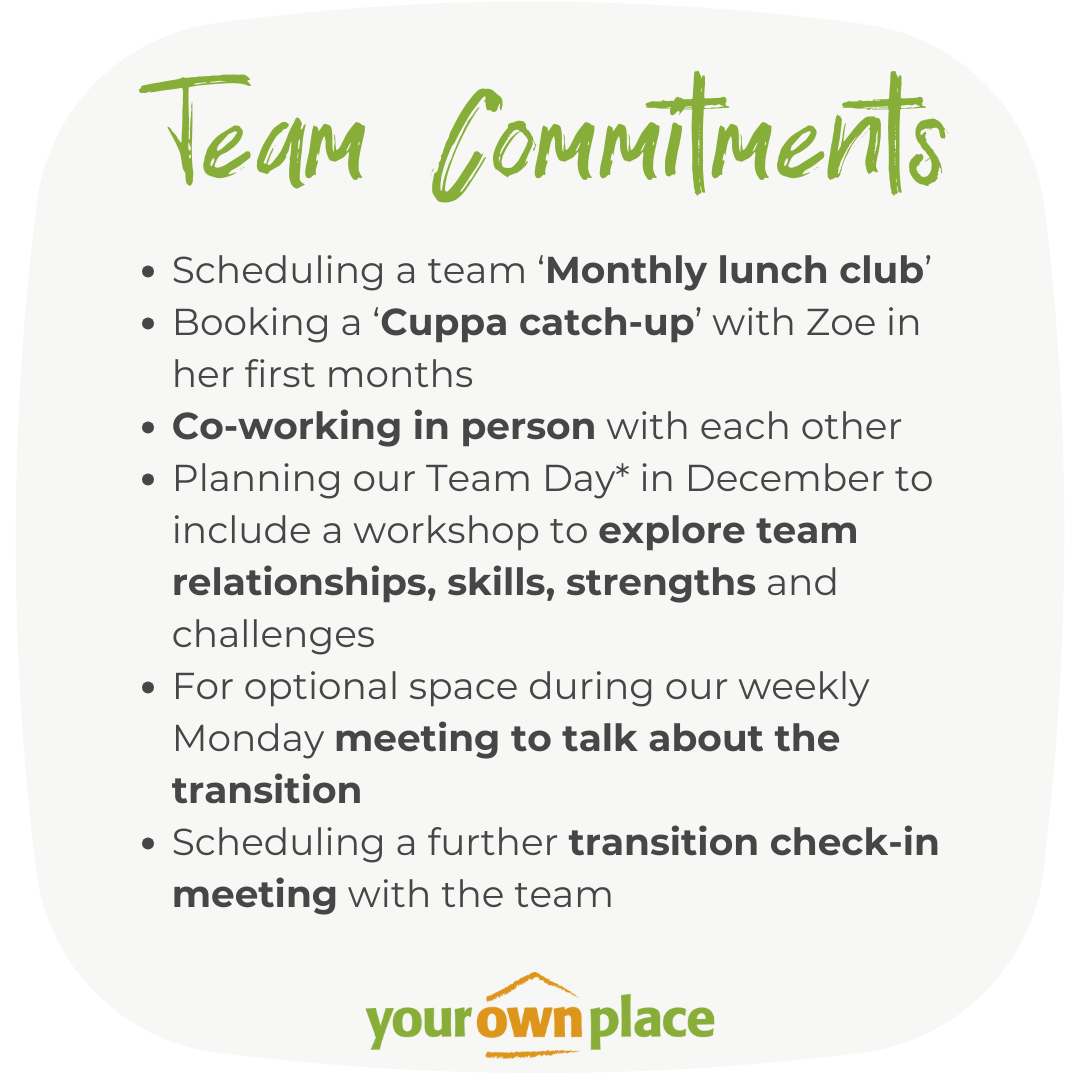Each quarter a member of the Your Own Place team is going to share an insight into their role at Your Own Place and what they have recently been up to as part of it. This quarter our Chief Operating Officer (COO), Jess Luce-Rackham shares about her experience of organisational and leadership change.

Over the last six months, Your Own Place’s CEO transition has been a hot topic of conversation with partners, with peers at training events and within our organisation. We’re very much still in a period of transition, systems are a quick(ish) switchover but embedding new humans in the team takes longer. I thought I would use this space to share some of the tools we have used to manage a large change within our small, bustling, values-driven social enterprise.
The Decelerator support service
The Decelerator is a free support service that offers information, tools and hands-on support for creating better endings. Earlier this year I had a one-hour 1-2-1 coaching call with a member of their team, to talk through my concerns, thoughts and ideas following our founder (Rebecca) moving on from Your Own Place and our new CEO (Zoe) joining. With a busy diary, I wasn’t particularly sold by the idea of finding space in my calendar. However, using the call to pause, reflect and talk to someone with no connections to Your Own Place was invaluable. I was introduced to the Bridges’ transition model, which influenced how I planned the next steps with the team.
Team collaboration – transition planning workshop
In early August, Jess Marsh (Lead Facilitator) and I facilitated a one-hour team workshop using the three stages of the Bridges’ Transition Model as a structure. The Model identifies three clear phases of a transition following a big change event, and how these may impact team morale. By approaching these ahead of time, the aim was to improve awareness and identify how we could support each other through each phase.

By asking the team coaching-style questions, we collaborated to identify how we would manage the leadership change, considered what we needed as individuals and as a team, and all took responsibility going forward.

The team transition plan, key messages and review process
Following the workshop, I summarised what we had agreed during the meeting and key messages for the time period; ultimately things we may all need to hear when we’re stretched and in the thick of the transition. This summary document was circulated with the team, the Board, and our social investors, and is now part of my ongoing review cycle.
Our team commitments included:

*Team Days – at Your Own Place five days per year are allocated as ‘Team Days’. These days focus on spending time connecting together, they provide space for whole team training and development or can be designated space for team wellbeing initiatives or support.
What’s next?
We are currently completing our annual 360 feedback process, where all team members will receive feedback about their strengths and development areas. Providing a structured, values-led and honest feedback loop where all team members have the space to share their views feels more important than ever.
To finish…
Ultimately change at work can be hard. There will be some days it feels easy and other days it feels difficult. Within all this, we have to consider our personal relationship to change, what skills we have banked on before and then how they can be applied to the next change we encounter.

